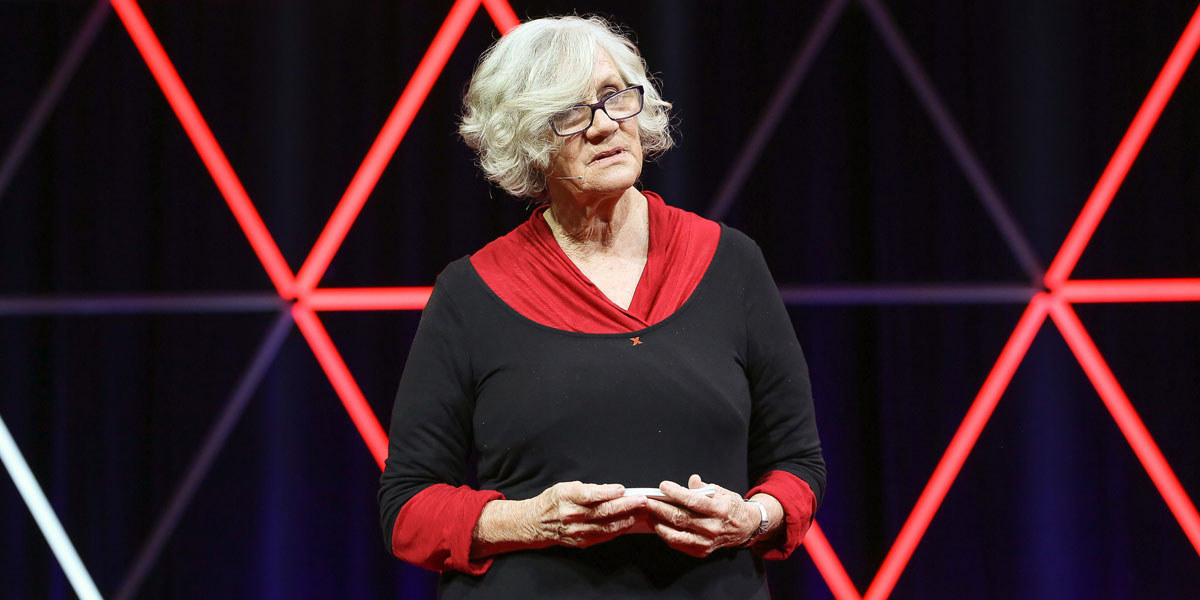No images? Click here

Centre News
Today is National Aboriginal and Torres Strait Islander Children’s Day!
To mark the day we have a fantastic blog by Glenda Kickett exploring what Cultural Safety looks like in therapeutic practice with Aboriginal and Torres Strait Islander children, young people and families.
This month, we also have a great range of upcoming learning opportunities and blogs on what works in intensive therapeutic care to support you and your teams. Read on to find out more.
Kelly Royds, Senior Advisor

Dan Hughes and the Dyadic Developmental Psychotherapy Course
16 to 20 November, and more dates
As an emerging knowledge base, the neuroscience of caregiving is critical to responding to the needs of traumatised and at-risk children and young people. You can now access Level 1 and Level 2 courses as real-time online workshops, with courses running for 5 consecutive days.
Upgrade your qualification - 10800NAT Graduate Certificate in Developmental Trauma
10 October, Course Start
Upgrade your qualification with this innovative, practical and relevant post-graduate qualification and enhance your practice with abused and traumatised children, young people, and their families.
Webinar with Professor Judy Atkinson: Intergenerational Trauma and Healing
13 August, 2020 - 11 am to 12pm (AEST)
Join our CEO in discussion with Emeritus Professor Judy Atkinson - a Jiman (central west Queensland) and Bundjalung (northern New South Wales) woman, with Anglo-Celtic and German heritage - on intergenerational trauma and healing.
Neurobiology of Self Care
Virtual Classroom: Multiple dates
Working with traumatised children and young people can impact us all but our understanding of the neurobiology of trauma can inform our approach to looking after ourselves as much as others. Self-care is critical to ensuring our own wellbeing as well as our capacity to support the children, young people and families with whom we work.
What is Cultural Safety?
Glenda Kickett
Cultural safety is about our practice and how we promote safe services that value our children, young people and families and their cultural identity, lived experiences and wellbeing.
What does voice and choice mean in Intensive Therapeutic Care?
Kelly Royds
Voice and choice can be an extremely difficult concept in Intensive Therapeutic Care to get right. What does voice and choice in Intensive Therapeutic Care might mean from a young person’s perspective?
Understanding and supporting young people who self harm in residential care
Noel MacNamara
Some of the young people we care for in the ITC programs deal with emotional distress and pain by hurting themselves physically. In this blog, Noel explores what self-harm is, why young people self-harm and some useful practice Do's and Don'ts for best supporting young people.
The Intensive Therapeutic Care Dance
Noel MacNamara
Therapeutic residential care can be thought of as a dance. It works best when therapeutic workers display therapeutic presence, are in sync with the young person, can making meaning of the young person’s behaviour and responses and work in a climate that supports therapeutic care.
The intention of trauma-informed practice and care is an increased understanding of how present behaviours and difficulties can be understood in the context of past trauma. The approach offers a framework for a common set of values, knowledge and language.
Do you have a story, practice reflection or case study you would like to share about the Intensive Therapeutic Care system? As we approach the two-year anniversary of the Intensive Therapeutic Care reform, we want to spotlight stories from our sector about what is working well in practice. If you are interested, please reach out to Kelly Royds or the Centre on kroyds@childhood.org.au
Want to know more?
If you would like to find out more about the Centre or discuss how the Centre could support your work contact Kelly Royds on 0407 516 858 or on kroyds@childhood.org.au
If you would like to discuss how the Centre can build your staff capacity through training and accredited courses contact Marina Dickson on 1300 381 581 or on mdickson@childhood.org.au
We want to hear from you!
We would love to hear any feedback how we are going and ideas on how we can better work together.










